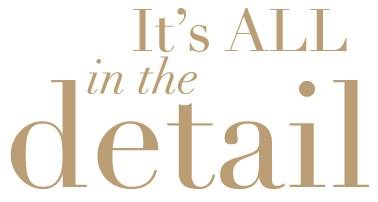Welcome to All in the Detail... I am so glad
you are here!
I hope you are having fun in my Design Style class that offers a
few details for each individual design styles. We only have a couple more to
go.
There
is so much talk about style in home decor… do you think you
could pinpoint your style if asked? Remember, there are no set rules when it
comes to design or style, it really just boils down to personal likes and
dislikes. To review the Design Styles that we have covered so far, click here.

Today, let’s talk about Transitional
Style. Transitional style is a marriage of traditional and contemporary
furniture, finishes, materials and fabrics equating to a classic, timeless
design. Furniture lines are simple yet sophisticated, featuring either straight
lines or rounded profiles. Fabric is as diverse as graphic patterns on
overstuffed sofas and textured chenille on sleek wood frames.
Colors: The transitional
palette relies on a lack of color to evoke a clean, serene atmosphere. Dark
brown can add depth to a neutral balance of taupe, tan and vanilla.
Accessories: A minimalist
approach is taken with carefully selected accessories — a potted orchid
gracefully arching in front of a window, white mats that set off photographs in
simple black and silver frames, an oval wooden tray that provides a resting
spot for similarly shaped silver candleholders. This kind of grouping provides
a counterpoint to the furniture.
Fabrics: The lack of
color makes room for interesting textures, such as the olive-colored corduroy
found on the pictured sofa and smooth, creamy white cotton used on two of the
side chairs. Other good choices for a transitional space are soft ultrasuedes,
pliable leathers and nubby chenille.
Furniture: Curves combine
with straight lines in a transitional style interior. The look balances both
masculine and feminine attributes for a comfortably contemporary design. The
scale of the pieces is ample but not intimidating. A lack of ornamentation and
decoration keeps the focus on the simplicity and sophistication of the design. via
























